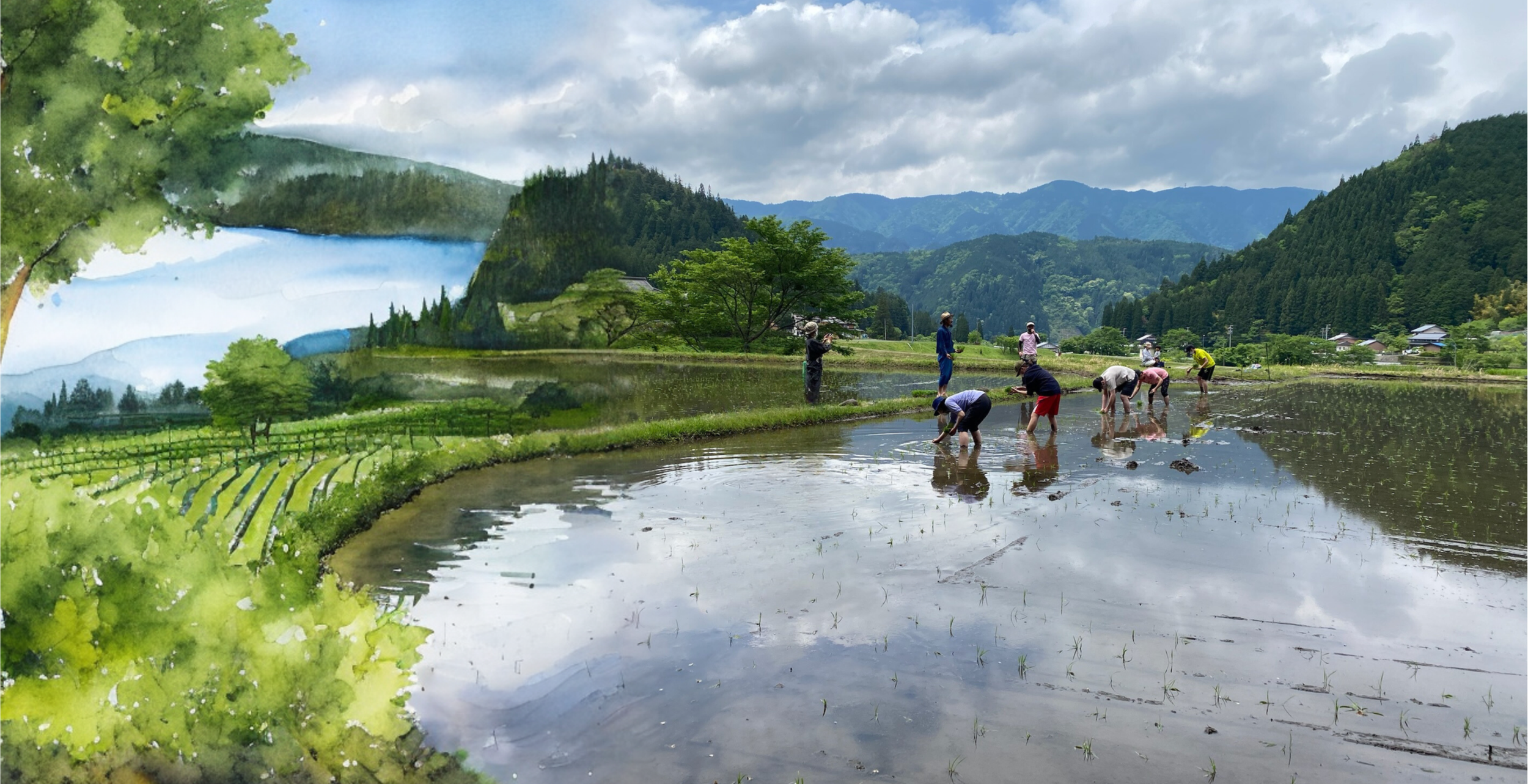
Mantis 21 (Summer 2023)
Translations
Okura of Yama-no-Ue
山上憶良
translated from Classical Japanese by Seiji Hakui
男子名は古日に恋ひたる歌三首
長一首短二首
世の人の 貴び願ふ 七種の 宝も我れは 何せむに わが中の 生れ出でたる 白玉の 我が子古日は 明星の 明くる朝は 敷栲の 床の辺去らず 立てれども 居れども 共に戯れ 夕星の 夕になれば いざ寝よと 手をたづさはり 父母も うへはなさかり さきくさの 中にを寝むと 愛しく しが語らへば いつしかも 人と成り出でて あしけくも よけくも見むと 大船の 思ひ頼むに 思はぬに 横しま風の にふふかに 覆ひ来れば 為むすべの たどきを知らに 白栲の たすきを懸け 真澄鏡 手に取り持ちて 天つ神 仰ぎ乞ひ禱み 国つ神 伏して額つき かからずも かかりも 神のまにまにと 立ちあざり 我れ乞ひ禱めど しましくも よけくはなしに やくやくに かたちくづほり 朝な朝な 言ふことやみ たまきはる 命絶えぬれ 立ち躍り 足すり叫び 伏し仰ぎ 胸打ち嘆き 手に持てる 我が子飛ばしつ 世間の道
反歌
若ければ 道行き知らじ 賄はせむ 黄泉の使 負ひて通らせ 布施置きて 我れは祈ひ禱む あざむかず 直に率行きて 天道 知らしめ
A Song to Miss a Boy Named Furuhi, followed by two Envois
The seven treasures¹ people praise
And hope to own to me
Were nothing, for to us was born
Our white pearl, Furuhi.
At daybreak where the morning star
Would proclaim a new day,
He would not leave our bed so he
With us could longer play.
At dusk the evening star would shine;
Would he to our hands cling
And ask, “I want you by my side
While I am sound sleeping.
So, mom, dad, please let us lie down
Together side by side.”
Such a lovely thing to say. He was
Truly our joy and pride.
We anticipated seeing him,
Should he be good or bad,
Grow up into a man. Was such
The hope in him we had.
But all at once a baleful wind
O’er him did sideways blow.
What means we had to save his life,
Did not at all I know.
I therefore on my shoulder wore
A sash of snow white cloth
And took up my clearest mirror²
To beg those great gods both:
I prayed unto the gods above,³
Eyes fixed at their blue sky;
To pray unto the gods of earth,⁴
I down in dirt did lie.
Upset and vexed I prayed so that
The gods’ will might alone
Decide my child should live or die:
My prayers did I intone.
But not for a moment he got well:
My child’s complexion got
More pallid day by day; with me
Now he could chatter not.
His life ended, so I sprang up
And stamped, crying, my feet.
And I fell down, and I gazed up;
With grief my chest I beat.
I had had him right in my arms
But I let him be hurled⁵ -
My dear child was taken from me.
O, the way of the world!
The Envois:
O, guide of Yomi,⁶
Please carry him on your back, I shall pay
The toll: the young child would not know the way.
Leaving the toll here,
I pray you not to lead my child astray,
But please lead him to heaven straightaway.
Translator’s Notes
1. The seven treasures: gold, silver, lapis lazuli, crystals, shells of the giant clam, corals, and agate. The concept originated in the Sukhāvatīvyūha Sūtra.
2. My clearest mirror: A round bronze mirror. Round mirrors have been regarded as symbols of the sun goddess in Shinto since Amaterasu bid her grandson Ninigi toenshrine the sacred mirror Yata-no-Kagami in her remembrance.
3. The gods above: The gods of heaven. The top of the hierarchy is Amaterasu.
4. The gods of earth: The gods that belong to earth. The top of the hierarchy is O-AnaMuchi, the son of Susanoo (the younger brother of Amaterasu and the moon god Tsukuyomi) and Princess Kushinada (a goddess of earth whom Susanoo saved from the eight-headed dragon Yamata no Orochi).
5. I let him be hurled: Some scholars take this line literally, that is to say the speaker, who is bawling, falling down and jumping up with the dead child in his arms, accidentally flings the corpse away. But here I followed the figurative interpretation: what the speaker means is that he failed to save his child.
6. Yomi: The land of the dead in Japanese mythology. The creator goddess Izanami became the ruler of Yomi after she gave birth to the fire god Kagutsuchi and died of burn injuries.
OKURA OF YAMA-NO-UE (c. 660 – 733) was a Japanese nobleman, envoy to Tang Dynasty China, and one of the major poets of the Man’yōshū, the oldest collection of Japanese poetry. His poems are often marked by his sympathy to common people, affection for children, and religious sincerity.
SEIJI HAKUI (b. 1986) is a Japanese poet living in Tokyo. His debut collection of poems, Sonnets and Translations, composed entirely in Classical Japanese, was published in 2022 by Shichosha.
